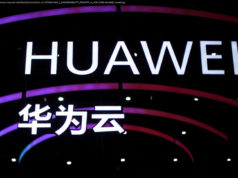Cheng Wei built a world-class ride-hailing app that not even Uber could keep up with in China.
But Didi’s risky play for expansion and dominance — culminating in a disastrous IPO this summer — has caused it to run afoul of Beijing. And now, the company’s top executive faces a difficult balancing act: placating regulators at home and investors abroad, while fending off fierce competition. Cheng,38, who also goes by Will Cheng, is the youngest entrepreneur heading one of China’s biggest tech firms. He’s been busy in the nine years since Didi was founded: Cheng has knocked out a flurry of powerful opponents and amassed nearly 160 million monthly active users by the first quarter of this year in China alone, nearly double the amount of users that Uber has worldwide. But the ride-hailing behemoth is now in a precarious spot. It’s one of the most prominent targets of China’s sweeping crackdown on tech and private enterprise that has no end in sight. Its stock has fallen more than 40% since regulators began probing the company, erasing $34 billion in market value. Earlier this summer, Chinese regulators banned Didi from app stores as part of an investigation into its data privacy and collection practices, threatening its future growth. The pressure could dismantle Didi’s stranglehold on the Chinese market unless the company can appease the ruling Chinese Communist Party. Didi declined to make Cheng available for an interview, and the company did not respond to questions about Cheng or its business. A swift and explosive rise Before he founded Didi in 2012, Cheng was a sales manager at Alibaba. Starting as an entry-level salesperson making the equivalent of about $200 a month, he rose quickly and in seven years became the company’s youngest regional manager. Cheng said he created Didi because he was fed up with being unable to get a taxi during a business trip, according to a profile published in June in the Business Times, a Chinese financial news outlet. The “pain” led him to think about how to fix the problem. “I was thinking, how about creating a ride-hailing app, so there can be fewer poor losers that get soaked in the rain?” Cheng said, recalling a depressing experience in Beijing when he couldn’t hail a cab for hours during a storm, according to the media outlet. Cheng founded Didi with just 100,000 yuan (roughly $15,000) of his own money, and another 700,000 yuan (roughly $110,000) from Wang Gang, an angel investor who supervised Cheng during his tenure at Alibaba. Wang’s initial investment was worth a billion dollars when Didi went public. Like its tech peers Baidu ( BIDU), Alibaba ( BABA) and Tencent ( TCEHY), Didi’s rise has been swift. When Cheng founded Didi, ride-hailing was still a regulatory gray area in China and taxis controlled the market. Cab shortages were common, as government-approved taxi operators lobbied to limit the supply of licenses. That fueled a boom in ride-hailing apps like Didi. Unlike traditional taxis, ride-hailing companies don’t require expensive and difficult-to-obtain licenses for cars or drivers. Before the industry was regulated five years ago, many cities accused ride-hailing apps like Didi of running illegal taxi businesses. Didi argued that it was only providing a platform to connect passengers with cars owned by rental agencies or other third parties. Didi had learned to navigate this gray zone.






